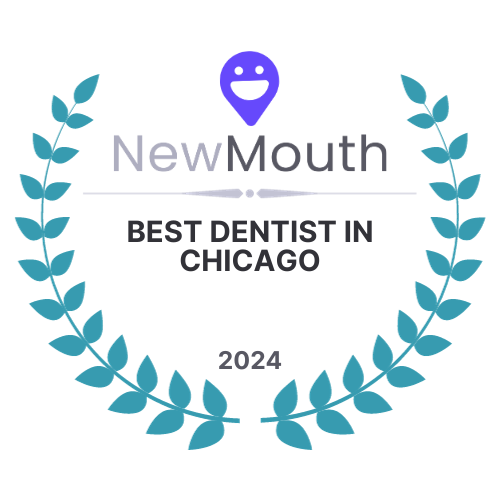Tooth Enamel: All the Things You Want and Need to Know
Teeth in Dreams – What Does it All Mean? Our Favorite Toy – the Votes Are In!
What is it? Only the hardest substance in the human body! Amazingly, our bodies are able to produce something that is almost entirely inorganic: enamel is composed of roughly 96% minerals (primarily calcium phosphate crystals), with water and organic material comprising the rest. Enamel forms before the tooth erupts into the mouth and is built to cover the whole exposed surface of the tooth. It’s a translucent material that can vary in color, ranging from yellows to blues to whites. In its completed state, enamel has no blood or nerve supply, making repair and regrowth nearly impossible.
Enamel is your tooth’s first line of defense. It protects the underlying dentin, cementum and dental pulp - the other three tissues that make up your tooth - from environmental factors, food and bacteria.
What causes enamel erosion? An extremely high mineral content – which accounts for its incredible strength – also makes enamel a very brittle substance, and one prone to demineralization (loss of tooth structure). Several factors can contribute to the loss of enamel:
- High sugar/acid intake: excessive consumption of sugar or starchy foods, as well as sugary and acidic drinks, can significantly contribute to enamel erosion, especially when allowed to sit on the teeth for long periods of time.
- Xerostomia: more commonly known as dry mouth due to decreased saliva production. Our saliva helps neutralize the acid present in our mouth and wash away harmful bacteria; when you have dry mouth, this ability is impaired, and the enamel suffers.
- Certain Medications: Some medications, such as antihistamines, vitamin C tablets and aspirin, can increase acid levels when they hit the surface of the tooth and contribute to demineralization. These guys also contribute to Xerostomia, leading to a similar result.
- Diseases: Acid reflux, bulimia, alcoholism and any disease that results in frequent vomiting can increase the acidity of the mouth and encourage enamel wear.
- Environmental factors: Up to now we've mainly looked at factors that make the mouth more acidic and encourage demineralization. Other factors speak to the brittle nature of enamel – these are conditions that cause wear and tear, cracking or abrasion. Brushing too hard, clenching and grinding or chewing on inedible, hard objects (pen caps, ice, fingernails) can all cause damage to a tooth’s protective enamel coating.
What are the symptoms?
- Sensitivity: Your teeth may become anywhere from slightly to extremely sensitive as enamel wears away and exposes the underlying tooth structure. This may be brought on by heat, cold or sweets, and will increase as erosion worsens.
- Change in color: Since enamel is translucent to begin with, it stands to reason that it would get more so as it becomes thinner. Yellowing teeth may mean that the dentin underneath the enamel is beginning to show through more.
- Cracks, chips or cupping: The environmental factors listed above can cause noticeable physical damage to the tooth – fracturing, chipping or pitting on the chewing surfaces.
How can I protect my teeth? As we learned earlier, fully formed enamel has no living cells, meaning unaided regrowth of enamel is simply not possible. The body does, however, have a natural process of remineralization – diffusing calcium and phosphate into the tooth to reinforce the existing crystalline structures - that can arrest enamel wear. Erosion and decay will occur when this process is outpaced by any of the above factors, but there are things we can do to support it:
- Diet: For a host of reasons, enamel protection included, it’s best to avoid food and drink that is high in sugar, overly starchy or particularly acidic. When you do consume these items, try to limit the amount of time they’re on your teeth – drink through a straw and rinse with water after drinking or meals.
- Dental home care routine: What you do on a daily basis is extremely important. Use fluoridated toothpaste to promote tooth strength – if you are particularly prone to cavities, you may want to add a fluoridated rinse into your routine as well. Brush gently to avoid causing damage to your teeth and tissues, and practice proper flossing techniques – we want these measures to be helping, not hurting!
- Treat medical conditions: Staying on top of the aforementioned diseases will help you protect your teeth as well – the relationship between our bodies and mouths is a strong and complicated one!
- Avoid teeth grinding: If bruxism – clenching and grinding your teeth – is a problem for you, it will certainly be a problem for your enamel. Talk to your dentist about treatment options such as night guards to alleviate discomfort and arrest enamel wear.
- Regular dental check-ups: We can help! Your dentist can spot the signs of enamel erosion and give you the best advice on treatment and prevention.
What does the future hold in store? Scientists from Bristol University and the University of Leeds have made developments over the past few years on a gel that can theoretically rebuild enamel. As yet, these gels are not commercially viable or fully tested. But, as with all the sciences, it would seem the future holds the promise of some amazing advancements!
